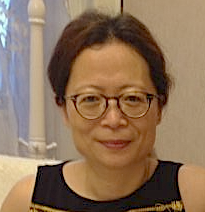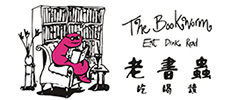Press

8 questions for Zhu Ying;
Bio: Zhu Yingxin
What have you been busy with lately?
Living, and nursing my body and soul? We live in a tumultuous era so taking a deep breath every now and then makes it easier to go through the long night’s journey into day.
What’s your view on the latest Oscar season?
Well all too predictable a narrative up until the climax when Bonny and Clyde, two of my favorite characters/stars strode out to unveil the biggest award of the evening. I had this inkling the moment I saw Warren Beatty that the award would evade the Hollywood musical. I can hardly imagine the Hollywood rebel and maverick rooting for a conventional Hollywood musical fantastic. Shocked I was to hear the announcement of La La Land, albeit from Faye Dunaway. It made sense that the award actually went to Moonlight. It would have been Clyde/Warren’s choice all along, I believe. La La Land has all the marks of a perfect craftsmanship, but Moonlight has the emotional fire! In the end, art is supposed to touch, evoke, and provoke.
Did you have time to catch the latest mainland hits like “To the Sky Kingdom / Eternal Love(三生三世十里桃花)” and “The name of people(人民的名义)”?
Doing my homework now.
What are the main focuses of your teaching and research right now?
I’m on sabbatical from teaching to work on a research project that attempts to offer an appraisal of the politics (including culture and economy) of Sino-Hollywood relation dating back to Hollywood’s early China triumph during China’s Republican era.
I normally teach standard cinema studies courses such as film appreciation, film theory and history (including issues relating to industry, narrative, genre, authorship, etc.), as well as national cinema (including Chinese cinema). I also teach screenwriting, a pet course of mine, which I started to develop almost a decade and a half ago at my current institution. Alas I had to give up the course during my tenure as the Dept. chair when the call of administrative duty clashed with my perfect teaching schedule and agenda.
Chinese viewers are exposed to international TV series for decades, especially those popular ones from Japan, Korea, US and UK. Which market has shaped the Chinese market the most?
East Asia pop culture with its geo-cultural proximity has a much bigger imprint on Chinese TV drama than the hard-boiled and frequently crime-ridden and politically charged US and UK dramas. The US/UK dramas remain objects of admiration by the elite Chinese audiences and practitioners but never true emulation, as the content and style are too alien to be adapted onto the small Chinese screen. English language shows are popular among sophisticated urban elites who pride themselves on having cultivated a taste for quality Western programs, as opposed to the East Asia pop culture or domestic productions devoured by what the elites see as viewers with less discerning tastes. Despite the social snobbery, domestic TV dramas with immediate social relevance have wide appeal to average Chinese viewers who are less attuned to Western dramas depicting a remote culture.
How are Chinese TV dramas and films perceived in other countries? Is it possible for them to cross a language and cultural border? Do you see any change in this field in the last years?
Depending on where in the world. Overall, Chinese TV dramas remain an ethnically based fancy, circulating globally among the Chinese diaspora. So not yet branching out of the cultural-linguistic barrier. Not sure if any change is afoot, as the old cliché rings certain truth that, unlike cinema, TV is a domestic media due to its intense immediacy and relevancy to local issues. Not sure still if Chinese TV drama needs to cross over to address universal issues, which would entail a strategic shift in its targeting audiences. The global popularity of US/UK TV dramas benefited from the ubiquity of US/UK pop culture around the globe so no translation is needed for folks in the rest of the world when they come to encounter with the US/UK pop culture. The issues Chinese TV dramas explore remain local to the Chinese. Race is integral to the limited circulation of East Asia pop culture in the West, which the problem of Hollywood’s whitewash has demonstrated.
You are writing a new book called The Sino-Hollywood Courtship. What are the main messages?
The book looks back at a century-long relationship between Hollywood and the Chinese film industry. I focus in particular on film as both a form of transnational cultural engagement and economic functioning. Hollywood dominated the Chinese film market during China’s Republican era (1912-1949) and it dominated the Chinese market again since 1994 when Hollywood blockbuster films were reintroduced to China. The two historical eras are vastly different, with the contours of the world and the international balance of power radically altered between them as China’s rapid economic growth in contemporary era nurtured its ambition to compete for cultural influence, and cinema is tasked with the responsibility of carrying the torch for Chinese culture.
My book compares the context and terms of Hollywood’s Republican era triumph to those of its repeat performance in the post-1995 era to reveal historical continuities and changes that do not appear in the standard accounts of political and ideological contests, of international economic competition, and of global expansion of media corporations, American and Chinese.
The term ‘Sino-Hollywood’ in my usage as opposed to ‘Sino-American’ points to differences and similarities in the way that the American and Chinese film industries have historically related to their host governments and to the way that Hollywood has gradually become less and less American. The term courtship suggests a fitful relationship that, however tentative and antagonistic at times, has brought two willing partners to the bargaining table in their common pursuit of prosperity and happiness, which are measurable at best by the size of box-office receipts, and the less tangible soft power.
I argue that the story of a Sino-Hollywood courtship is one about competing cultural and capital values and developmental models as well as nationalism and exceptionalism/cultural supremacy, American and Chinese, and about the shifting global power dynamic playing out in the art and artifice of filmmaking, distribution, and exhibition – a grand negotiation between capitals and capitalists.
Books or films, which are more important for promoting soft power internationally?
I’m frankly quite fatigued about the notion of soft power, despite the fact that I’m working on two books related to soft power. Emotional resonance is probably a more interesting term, though equally elusive. In this regard, books and audiovisual products, if done well, are equally compelling in their capacity to appeal to emotions. Isn't this what storydrive is about?









































